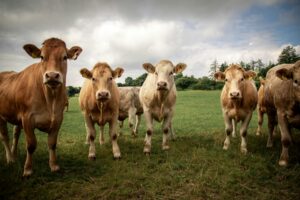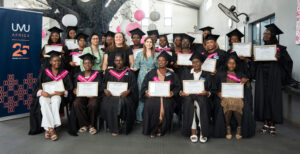Written by Justin Chadwick, CEO of the Citrus Growers’ Association
Last week I was at Fruit Attractions in Madrid. On the trip, a colleague from Peru asked me a question: how is it that growers in South Africa continue to invest on their farms in a situation where so many government voices are not truly supportive, in fact, from outside it seems that they are against farmers – people want to expropriate land without compensation, rural safety is an issue, the ports work poorly, the EU (despite relying on South Africa for counter-seasonal citrus supply) disregards international codes of conduct?
My answer to him: he does not understand the South African farmer – hy weet nie wat ons weet nie. We know that the South African farmer is a breed apart. The saying “’n boer maak ‘n plan” is true – no matter what is thrown at him or her, they find a way of working through it. Some call this resilience. Although resilience is usually thought to be a positive trait, it can become a double-edged sword: if resilience means getting used to and then accepting the unacceptable, then it becomes a big problem. And in South Africa, many things are unacceptable. I believe that the point to where you can push farmers was getting close to boiling over in the period leading up to the 2024 elections.
Yes, growers are resilient and they make a plan, but their patience and ability to take blow after blow was seriously tested as we approached May this year. On top of the political uncertainty, growers in the citrus industry have had to put up with so many “black swan events” that the black swan, in ornithological terms, has moved from “extremely rare vagrant” to “common resident”. From the highs of 2020, when COVID stimulated orange demand as consumers sought Vitamin C, the industry has faced a number of these events. COVID’s impacts on international shipping resulted in elevated freight rates – in some cases doubling the rate – and shipping costs account for 40% of the cost chain – double that, and there is not much left on the farm. Growers have still not recovered completely from the losses suffered due to elevated freight rates in 2021 and 2022.
The July 2021 uprising in KZN and parts of Gauteng resulted in a halt to exports as the national highways were closed and port workers could not safely return to work. No sooner was that resolved than Transnet had a cyberattack crippling operations and resulting in further delays.
Roll on to 2022 and Durban was subjected to floods with containers floating down the national highway, and the only access road to the container terminal was washed away. The wars in Ukraine and then the Middle East also affected our industry.
Over the years the hits just kept on coming – yet the industry still continued to export record crops. The citrus industry too rarely gets credit for this achievement.
So that was the past. What of the future? If the farmers were close to the end of their tether as we approached the elections, the resultant Government of National Unity has led to new optimism and hope. Although we see teething problems as the parties learn to work together, what we do see is a tendency of putting the interest of the people first. This is not an insignificant change and one hopes it translates into more supported farms and farmers. Our growers will always be resilient, but they should never become inured to the unacceptable.
***
The above first appeared in the From the Desk of the CEO newsletter. Read the original here.
Relevant Agribook pages include “Citrus” and “Fruit (general)“
Photo by julie aagaard: www.pexels.com/photo/photo-of-pile-of-oranges-2294477/



